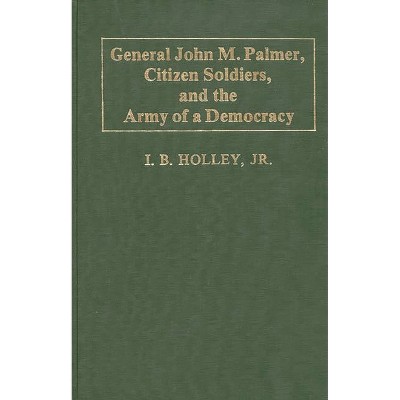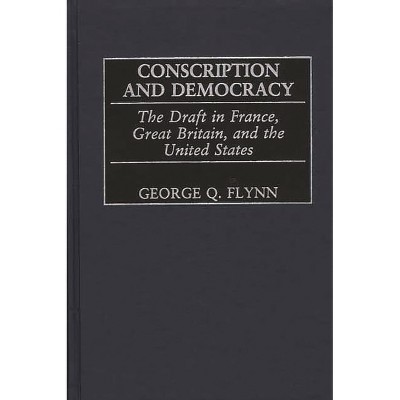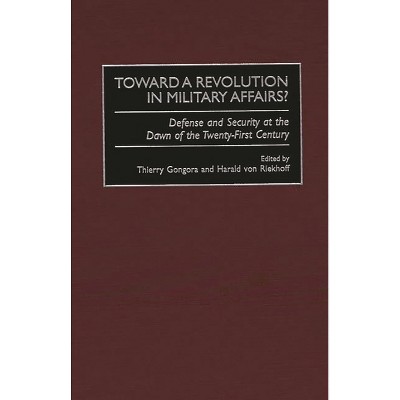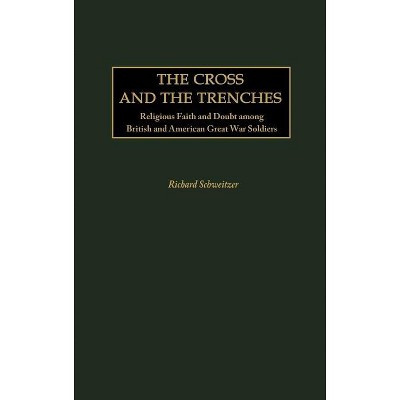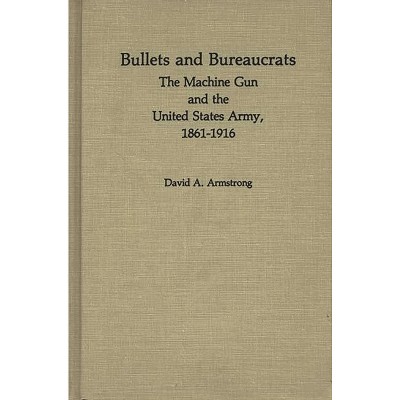Sponsored

Democracy Under Siege - (Contributions in Military Studies) by Augusto Varas (Hardcover)
In Stock
Sponsored
About this item
Highlights
- Although the military has historically played a pivotal role in Latin American politics and society, until now little attention has been paid to the complex set of civilian-military relations in each country.
- About the Author: AUGUSTO VARAS is a Chilean political sociologist and international relations analyst at the Facultad Latinoamericana de Ciencias Sociales (FLASCO) in Santiago, Chile.
- 230 Pages
- Political Science, General
- Series Name: Contributions in Military Studies
Description
About the Book
Although the military has historically played a pivotal role in Latin American politics and society, until now little attention has been paid to the complex set of civilian-military relations in each country. This collection of essays, the product of a long-term research program organized by a group of prominent Latin American scholars, compares current linkages among the armed forces and local social and political structures and institutions. Within each nation studied, the contributing author found increasing military autonomy vis-a-vis the state. They show that this institutional autonomy has allowed the military to develop as independent political entities within the various countries, a process that seems to be common to all Latin American societies. Their research also demonstrates how the military diversifies itself when acquiring higher degrees of institutional autonomy.
Collectively, the contributors contend that although civilian democratic forces will play a much larger role in political decisionmaking in this decade as compared to the last, it is evident that armed forces will retain a considerable share of political power. Regardless of the institutional arrangement, the military will continue to exercise significant veto power over civilian political forces. The independent military that has emerged is a new variable that must be taken into account in future analyses of Latin America's secular political crisis. By compiling the first complete analysis of Latin American military forces and their role in contemporary domestic politics, editor Augusto Varas has made a significant contribution to the study of Latin American politics. This first examination of the role of the armed forces during a period of relative political stability will be welcomed by historians and political scientists alike.
Book Synopsis
Although the military has historically played a pivotal role in Latin American politics and society, until now little attention has been paid to the complex set of civilian-military relations in each country. This collection of essays, the product of a long-term research program organized by a group of prominent Latin American scholars, compares current linkages among the armed forces and local social and political structures and institutions. Within each nation studied, the contributing author found increasing military autonomy vis-a-vis the state. They show that this institutional autonomy has allowed the military to develop as independent political entities within the various countries, a process that seems to be common to all Latin American societies. Their research also demonstrates how the military diversifies itself when acquiring higher degrees of institutional autonomy.
Collectively, the contributors contend that although civilian democratic forces will play a much larger role in political decisionmaking in this decade as compared to the last, it is evident that armed forces will retain a considerable share of political power. Regardless of the institutional arrangement, the military will continue to exercise significant veto power over civilian political forces. The independent military that has emerged is a new variable that must be taken into account in future analyses of Latin America's secular political crisis. By compiling the first complete analysis of Latin American military forces and their role in contemporary domestic politics, editor Augusto Varas has made a significant contribution to the study of Latin American politics. This first examination of the role of the armed forces during a period of relative political stability will be welcomed by historians and political scientists alike.Review Quotes
?Varas is a Chilean political sociologist who directs CLADDE, a network of Latin American scholars who study linkages between the armed forces of the region and the corresponding social and political structures. This volume, translated from Spanish, originated in the first (1985) international seminar on civilian-military relations and democracy. It deals with Cuba, Mexico, Central America (except Panama), and all of the Spanish-speaking South American countries except Venezuela and Paraguay. The general theme is that Latin American military establishments are becoming increasingly autonomous vis-a-vis states and societies. Yet several chapters indicate that this is not the case in Cuba, Guatemala, El Salvador, and perhaps Nicaragua. The authors know their countries well and the essays are detailed and nuanced.?-Choice
"Varas is a Chilean political sociologist who directs CLADDE, a network of Latin American scholars who study linkages between the armed forces of the region and the corresponding social and political structures. This volume, translated from Spanish, originated in the first (1985) international seminar on civilian-military relations and democracy. It deals with Cuba, Mexico, Central America (except Panama), and all of the Spanish-speaking South American countries except Venezuela and Paraguay. The general theme is that Latin American military establishments are becoming increasingly autonomous vis-a-vis states and societies. Yet several chapters indicate that this is not the case in Cuba, Guatemala, El Salvador, and perhaps Nicaragua. The authors know their countries well and the essays are detailed and nuanced."-Choice
About the Author
AUGUSTO VARAS is a Chilean political sociologist and international relations analyst at the Facultad Latinoamericana de Ciencias Sociales (FLASCO) in Santiago, Chile. He is director of the Latin American Center for Defense and Disarmament (CLADDE) and author of Militarization and the International Arms Race in Latin America and Latin American-Soviet Relations in the 1980s.





